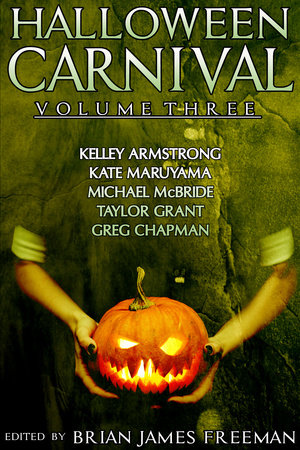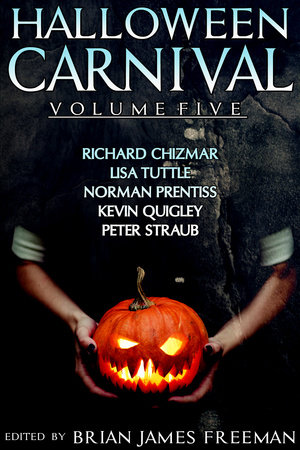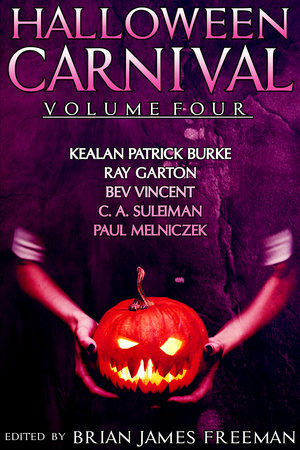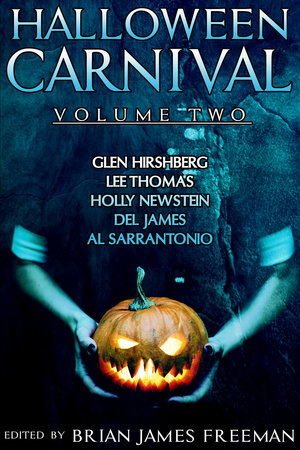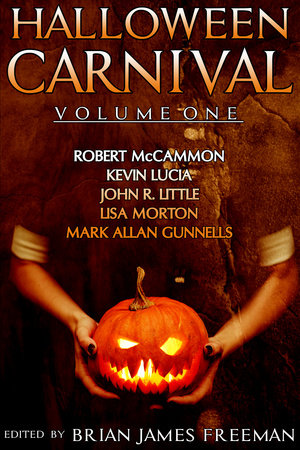Excerpt
Halloween Carnival Volume 3
The Way Lost
Kelley Armstrong
Every Halloween, one child in Franklin lost his way and never came home. The next morning before school, we would circle the playground, trying to figure out who was missing, locating our friends with relief . . . and our enemies with disappointment. The bell would ring, and we’d file into class, and if every seat in the room was full, we’d nod, as if satisfied, but deep down we felt cheated of the excitement that came with a missing classmate.
If the empty desk was in our room, the teacher would start the lesson with “June is no longer with us. If anyone would prefer her seat, please move there after lunch. You may clear out her belongings at recess.” Come recess, we’d bicker over who got June’s fancy fountain pen or dog-eared copy of Charlotte’s Web
. Quiet bickering—anything louder disrespected the dead.
Not that we knew June was dead. No one ever said that. No funeral would be held. No new grave would appear in our town cemetery. Even her family would continue on as if nothing had happened. As if she’d simply grown up, moved away, and didn’t care to return.
But we kids knew that June was dead. We just knew.
We also knew that we weren’t supposed to ask questions. I don’t know how many stuck to that in the privacy of their homes. I did, mostly, but now and then I couldn’t help bringing it up. The first time I remember doing so was when I was nine, after Billy Carson disappeared.
I’d known Billy. Didn’t like him much. He’d lived next door and used to torment our dog by sticking food through the fence and then yanking it back, laughing when Scamp smacked into the wood.
But Billy was still the first kid I actually knew who disappeared on Halloween, and so naturally I asked my mother what happened to him. We were in the kitchen. I sat on the stool by the counter and watched her chop carrots for soup, and I asked about Billy Carson.
“He lost his way,” she said, still chopping.
“How?”
She shrugged. “He just did. It happens.”
Three years later, after Sue Parker disappeared, I was back on that same stool, my sneakers knocking against the wood as my mother rolled dough for pie.
“I liked Sue,” I said.
She kept rolling. Five minutes had passed before I said it again: “I liked Sue.”
“I know.”
“She was pretty.”
“She was.”
“And nice.”
“Yes.”
“But she lost her way?”
My mother took flour from the bag and sprinkled it. “She did.”
“Last night, when I was trick-or-treating, I thought I saw her.”
My mother stopped, her hand poised over the floured counter.
“She was cutting through the forest,” I said. “Is that where it happens? In the forest?”
She reached for the dough. “Yes.”
“So if I avoid the forest on Halloween, I won’t lose my way?”
“Yes. You should avoid the forest on Halloween.” She set the dough down, hesitated, and then lifted her gaze to mine. “Please.”
I said I would.
I lied.


